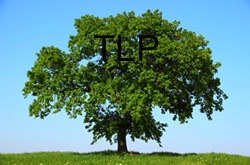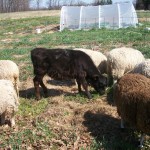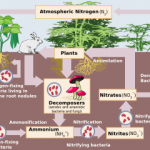I recently came across these comments from Joel Salatin on imperialism and farming. Sad insights into what our imperial leaders think.
Joel Salatin
Aug. 18, 2013
Why do we need more farmers? What is the driving force behind USDA policy? In an infuriating epiphany
I have yet to metabolize, I found out Wednesday in a private policy-generation meeting with Virginia Democratic
gubernatorial candidate Terry McCauliffe. I did and still do consider it a distinct honor for his staff to invite me as
one of the 25 dignitaries in Virginia Agriculture for this think-tank session in Richmond.
It was a who's who of Virginia agriculture: Farm Bureau, Va. Agribusiness Council, Va. Forestry Association,
Va. Poultry Federation, Va. Cattlemen's Ass., deans from Virginia Tech and Virginia State--you get the picture.
It was the first meeting of this kind I've ever attended that offered no water. The only thing to drink were soft drinks.
Lunch was served in styrofoam clam shells--Lay's potato chips, sandwiches, potato salad and chocolate chip cookie.
It didn't look very safe to me, so I didn't partake. But I'd have liked a drink of water. In another circumstance, I might
eat this stuff, but with these folks, felt it important to make a point. Why do they all assume nobody wants water,
nobody cares about styrofoam, everybody wants potato chips and we all want industrial meat-like slabs on white bread?
But I digress. The big surprise occurred a few minutes into the meeting: US Secretary of Agriculture Tom Vilsack
walked in. He was in Terry McCauliffe love-in mode. And here is what he told us: for the first time--2012-- rural America
lost population in real numbers--not as a percentage but in real numbers. It's down to 16 percent of total population.
I'm sitting there thinking he's going to say that number needs to go up so we have more people to love and
steward the landscape. More people to care for earthworms. More people to grow food and fiber. Are you ready
for the shoe to drop? The epiphany? What could the US Secretary of Agriculture, at the highest strategic planning
sessions of our land, be challenged by other leaders to change this figure, to get more people in rural America, to
encourage farming and help more farms get started? What could be the driving reason to have more farmers?
Why does he go to bed at night trying to figure out how to increase farmers? How does the President and other
cabinet members view his role as the nation's farming czar? What could be the most important contribution that
increasing farmers could offer to the nation? Better food? Better soil development? Better care for animals?
Better care for plants?
Are you ready? Here's his answer: although rural America only has 16 percent of the population, it gives
40 percent of the personnel to the military. Say what? You mean when it's all said and done, at the end of the
day, the bottom line--you know all the cliches--the whole reason for increasing farms is to provide cannon
fodder for American imperial might. He said rural kids grow up with a sense of wanting to give something back,
and if we lose that value system, we'll lose our military might.
So folks, it all boils down to American military muscle. It's not about food, healing the land, stewarding
precious soil and resources; it's all about making sure we keep a steady stream of youngsters going into the
military. This puts an amazing twist on things. You see, I think we should have many more farmers, and have
spent a lifetime trying to encourage, empower, and educate young people to go into farming. It never occurred
to me that this agenda was the key to American military power.
Lest I be misread, I am not opposed to defending family. I am not opposed to fighting for sacred causes.
I am violently opposed to non-sacred fighting and meddling in foreign countries, and building empires. The
Romans already tried that and failed.
But to think that my agenda is key to building the American military--now that's a cause for pause. I will
redouble my efforts to help folks remember why we need more farmers. It's not to provide cannon fodder for
Wall Street imperialistic agendas. It's to grow food that nourishes, land that's aesthetically and aromatically
sensually romantic, build soil, hydrate raped landscapes, and convert more solar energy into biomass than
nature would in a static state. I can think of many, many righteous and noble reasons to have more farms.
Why couldn't he have mentioned any of these? Any?
No, the reason for more farms is to make sure we get people signing up at the recruitment office. That's
the way he sees me as a farmer. Not a food producer. When the president and his cabinet have their private
conflabs, they don't see farmers as food producers, as stewards of the landscape, as resource leveragers.
No, they view us as insurance for military muscle, for American empire building and soldier hubris. Is this
outrageous? Do I have a right to be angry? Like me, this raw and bold show of the government's farming
agenda should make us all feel betrayed, belittled, and our great nation besmirched.
Perhaps, just perhaps, really good farms don't feed this military personnel pipeline. I'd like to think our
kind of farming has more righteous goals and sacred objectives. Vilsack did not separate good farmers from
bad farmers. Since we have far more bad farmers than good ones, perhaps the statistic would not hold up
if we had more farmers who viewed the earth as something to heal instead of hurt, as a partner to caress
instead of rape. That America's farms are viewed by our leaders as just another artery leading into military
might is unspeakably demeaning and disheartening.
Tragically, I don't think this view would change with a different Democrat or Republican. It's entrenched
in the establishment fraternity. Thomas Jefferson, that iconic and quintessential agrarian intellectual, said
we should have a revolution about every half century just to keep the government on its toes. I'd say we're
long overdue.
Now when you see those great presidentially appointed cabinet members talking, I just want you to think
about how despicable it is that behind the facade, behind the hand shaking and white papers, in the private
by-invitation-only inner circles of our country, movers and shakers know axiomatically that farms are really
important to germinate more military personnel. That no one in that room with Terry McCauliffe, none of those
Virginia farm leaders, even blinked when he said that is still hard for me to grasp. They accepted it as truth,
probably saying "Amen, brother" in their hearts. True patriots, indeed.
It'll take me awhile to get over this, and believe me, I intend to shout this from the housetops. I'll incorporate
in as many public speeches as I can because I think it speaks to the heart of food and farming. It speaks to
the heart of strength and security; which according to our leaders comes from the end of a gun, not from the
alimentary canal of an earthworm. Here's to more healthy worms.









